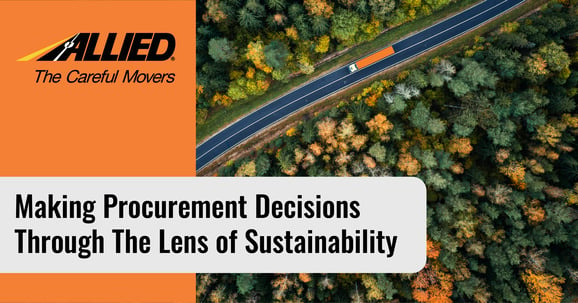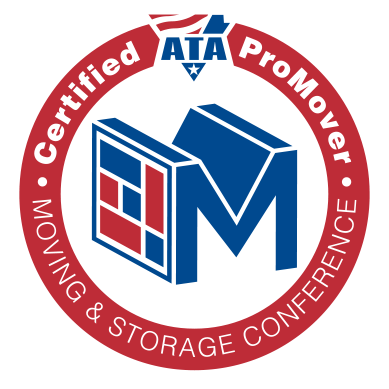
Sustainability is increasingly becoming a major focus across nearly every industry. A 2021 survey of procurement professionals found that 73% of respondents believe sustainability will increase as a sought-after supplier value over the next five years. As consumers push for companies to be more sustainable and environmentally friendly, procurement professionals have the opportunity to meet and exceed expectations with their purchasing decisions.
Moving Toward More Sustainable Procurement
Considering sustainability as you make procurement decisions is becoming more critical, even if your organization isn’t currently prioritizing it. With changing consumer values and forthcoming regulations promoting eco-friendly policies, now is the time to start making sustainable changes.
Procurement professionals can play a key role in guiding companies towards sustainability. According to McKinsey & Company, on average, two-thirds of a company’s environmental, social and governance (ESG) footprint lies with suppliers. As many organizations are being forced to reevaluate their supplier and purchasing decisions due to supply chain issues and the COVID-19 pandemic, among other issues, procurement teams have a great opportunity to lead their companies in a sustainable direction.
What to Look for in Sustainable Suppliers
Starting the shift towards sustainable purchasing can be overwhelming. Sustainability metrics can vary and suppliers can quickly price-out purchasers’ budgets. As you look to partner with environmentally friendly suppliers, it's crucial that you know what to look for beforehand.
Start your search by determining which sustainability metrics are non-negotiable for your organization, and which ones you’ll allow for a bit more wiggle room. Maybe your company wants to prioritize the use of clean energy or maybe you want to focus on the use of raw materials. Knowing your company’s priorities will also help manage budgets, as you’ll know what you are and aren’t willing to spend allocated funds on.
A great way to quickly gauge the credibility of suppliers is by looking for what certifications they hold if any. Designations from the Green Business Bureau, B Lab Corporation or Energy Star are great ways to determine whether a supplier meets certain standards.
As you look into supplier options, don’t be afraid to ask tough questions. Steer away from yes or no questions and give suppliers the opportunity to provide details about their sustainable practices. This not only allows you to learn more about your suppliers and help develop stronger relationships but gives your procurement team a chance to spot potential inconsistencies and green-washing, a practice wherein organizations can misrepresent themselves as more eco-friendly than they are.
Additional Benefits of Sustainable Procurement
Making sustainable purchasing decisions doesn’t only produce environmental benefits; it can also help you better manage supply chain risk. Sustainable suppliers often prioritize supply chain transparency. This provides more insight into the supplier’s logistics, allowing for easier and more effective risk management. Additionally, this enables your organization to learn more about the supplier’s labor practices.
Sustainable suppliers also are a hub for innovation, as they often are required to innovate to find sustainable solutions. This allows your company to be on the cutting-edge of new and improving technologies. Partnering with innovative suppliers may push your organization to exercise its creative muscles and find new ways to do business and become a leader in its industry.
Prioritizing Sustainability When Choosing a Relocation Partner
When shifting towards more environmentally friendly procurement decisions, there are many areas where you can prioritize sustainable policies and suppliers. Particularly for companies that regularly relocate employees, working with a relocation partner who implements their own eco-friendly practices and policies is a great way to integrate sustainable changes.
Moves can produce a lot of waste and pollution – from boxes that will eventually be discarded and food waste to CO2 emissions from moving trucks. Partnering with sustainable relocation experts will not only help your employees have a positive moving experience, but will help you mitigate and manage the environmental concerns associated with relocation.
Allied is leading the pack and implementing practices to reduce greenhouse gas emissions and utilizing technologies that help lower our carbon footprint. To hear more about the steps we’re taking to reduce our environmental impact, why the relocation industry needs to embrace sustainability, and how procurement professionals can view purchasing through a sustainable lens, download our latest white paper.
The Careful Movers®
At Allied, we’re committed to sustainability and providing an unrivaled customer experience. We lean on 90+ years of experience while embracing sustainable changes that minimize our environmental footprint so that we can contribute to creating a better, cleaner world. Because we want to keep helping people through life’s biggest transitions for years to come. Learn more.


![shield [Converted] susan](https://corporate.allied.com/hubfs/susan.png)
![shield [Converted] move](https://corporate.allied.com/hubfs/move.png)

